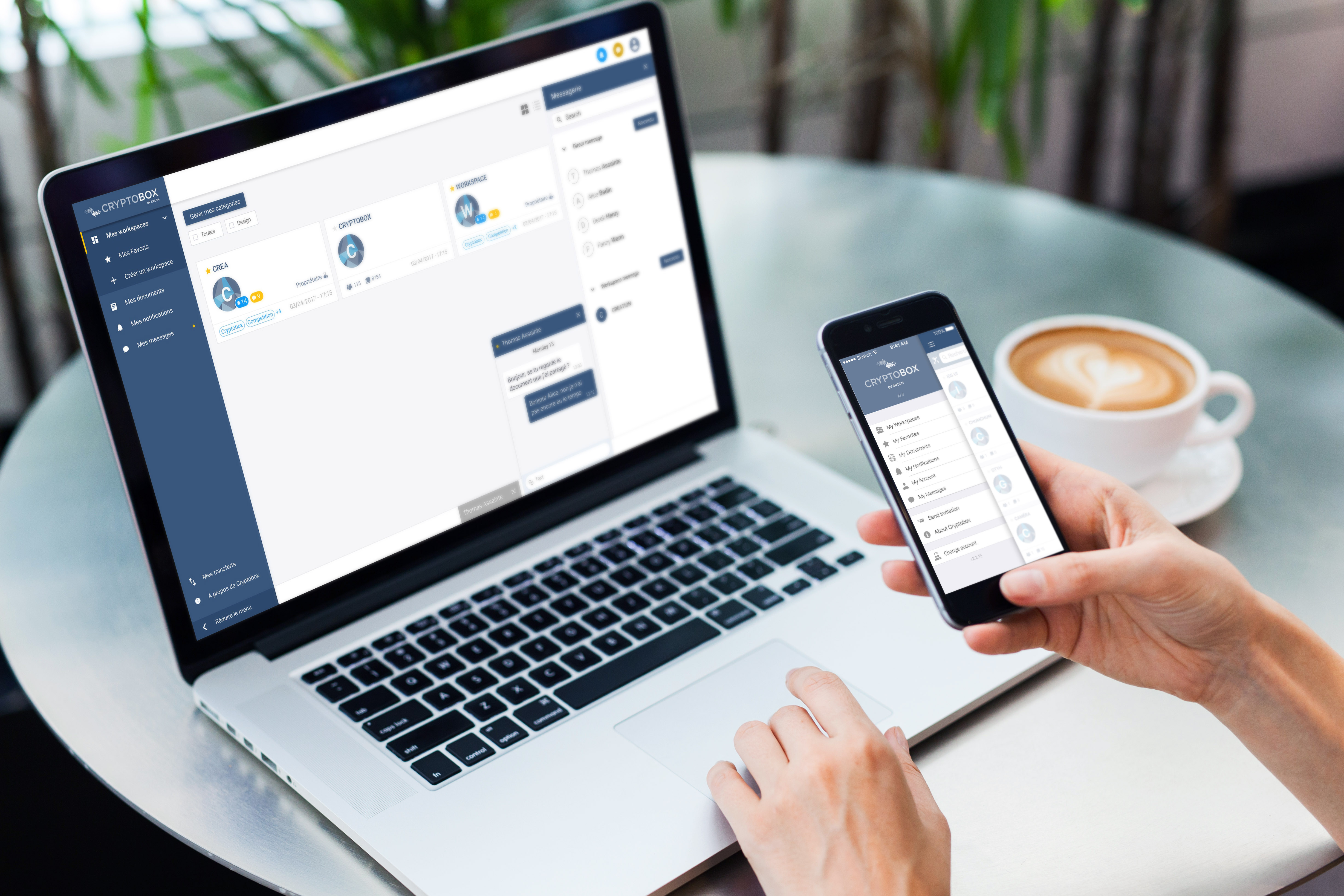Ensuring data sovereignty: Strategies and solutions for organisations
Discover strategies and solutions to ensure your organisation’s data sovereignty
A refresher on data sovereignty
Data sovereignty is crucial on several levels. It ensures diligent data security monitoring, as data is governed by the local legislation of the country where it is hosted. Data sovereignty also strengthens the protection of sensitive data held by organisations, by limiting the risk of violating the Data Protection Act, otherwise known as GDPR (General Data Protection Regulation).
In short, it ensures confidentiality and regulatory compliance and helps establish a trusted relationship with customers.
Identifying sensitive data
Business data includes all information about an organisation's customers, operations, markets, and finances. It is used to assess an organisation’s overall performance and guide strategic decisions.
Data is generally classified according to its use and the context in which it is handled and viewed. There are several types of data classification, including:
- Restricted
- Confidential
- Internal
- Public
The goal is to ensure that data is used in the right way and at the right time and that it remains secure throughout its lifecycle. By organising data into groups with similar characteristics, organisations can better protect and manage data that are essential to them.
Data classification can become extremely complex for an organisation with different business functions, wide-ranging deliverables, and divergent needs. However, it is essential for an effective cyber-security program. Generally, data classification is based on a three- or four-level system, similar to the one shown below:
3 Levels | 4 Levels |
Public | Public |
Confidential | Internal only |
Highly confidential | Confidential |
| Highly confidential (RestrictS |
Starting with a 3 levels system helps novice organisations get a better grasp on data classification. This step can be tricky as the different levels need to be defined, as well as their associated actions and controls.
Consequences should not be underestimated: in the event business data is lost or leaked, organisations could face heavy financial and legal penalties. This disruption can lead to a drop in sales, jeopardizing their financial health in the short to medium term. According to a Global Data Protection Index study, the average cost of a data loss over the last 12 months is $2.61 million.
In addition to the financial implications, data loss can damage an organisation’s brand. Since data can contain personal or even sensitive information, losing such data can lead to a loss of confidence from customers, suppliers, and employees.
Assessing data sovereignty needs
Several steps are necessary to assess data sovereignty needs. It is crucial to carry out a thorough analysis of applicable regulations such as the GDPR in Europe or the CCPA in the United States, as well as other national laws, to understand specific data protection requirements.
Identify your organisation’s specific requirements depending on its industry and customer base. For example, in the healthcare industry, patient medical data is highly confidential. Following numerous attempts to steal data, the French Parliament passed a law on 10 April 2024 “requiring the use of a SecNumCloud-certified hosting solution for the Health Data Hub”. This law requires the confidentiality and security of patient medical data, particularly about storage, access, and sharing.
Finally, the implications of the geographical location of data need to be assessed. In the USA, laws such as the ‘Cloud Act’ and the ‘Patriot Act’ give US authorities access to foreign data hosted by US organisations, raising concerns about data confidentiality.
Faced with this challenge, certain regulations require residents’ data to be stored and processed in the country where the legislation applies, which may limit Cloud storage options or require additional measures to achieve compliance.
By taking these different aspects into account, organisations can develop effective strategies to protect their data in line with the legal requirements applicable in their country and ensure the appropriate protection measures are implemented.
To find out more, read our guide: Ensuring regulatory compliance when sharing data.
Implementing appropriate protection measures
Several strategies can be adopted to ensure adequate protection of sensitive data.
Firstly, end-to-end encryption is essential for securing sensitive data, whether in transit across networks or at rest in storage systems. Encryption ensures that even if data is intercepted or compromised, it remains unreadable to unauthorized parties. Robust encryption protocols must be implemented to protect data integrity and confidentiality.
Secondly, strict access control and security policies are essential to limit data breaches, such as two-factor authentication or assigning a dedicated role to all users on the platforms they use. Monitoring should be included, to audit recurrent activities and detect even the slightest suspicious ones.
Finally, regular, secure backups must be carried out continuously, with rapid restoration capability to minimise disruption in the event of an emergency. This enables organisations to ensure their data remains available in case of incidents such as data loss, corruption, or ransomware attacks.
By combining these data protection measures, organisations can strengthen their security posture and reduce the risk of loss, compromise, or breach of their sensitive data. It is also important to keep these measures updated due to evolving regulations and threat landscape and to regularly educate employees about the importance of securing data.
Solutions to strengthen data sovereignty
The Sovereign Cloud strengthens access and ensures total control over the physical location of data, as it is hosted in the country where the relevant legislation applies.
The SecNumCloud is a significant solution to the challenges of digital sovereignty, enabling data security for public administrations, Organisations of Vital Importance, and Essential Services Operators in a trusted environment recommended by ANSSI and the French government through its “Cloud au centre” doctrine.
Using a Cloud service provider that complies with data sovereignty standards and offers contractual guarantees, ensures advanced security measures with tighter access control to sensitive data are provided, while complying with local regulations, thereby reinforcing protection against cyber-attacks, intrusions, and data breaches.
The use of confidentiality technologies such as homomorphic encryption to process data securely and prevent exposure may also be a solution. According to the CNIL, “homomorphic encryption is a cryptographic technique that enables operations to be performed on encrypted data without the need to decrypt it. The result of these operations remains encrypted and can only be decrypted by authorized recipients (holding the decryption key). This technique allows participants in a compute to keep their data confidential during a computation.”
At the same time, all these solutions imply a cultural change to encourage teams to integrate the benefits of a sovereign Cloud into their daily business practices. It is important to educate and train them.
Educating and training staff
To strengthen data security, it is essential to raise employee awareness about the risks involved with handling sensitive data. This includes covering threats such as phishing and malware attacks, and data breaches, as well as the potential consequences for organisations and individuals in the event of data compromission.
Learning best practices is therefore essential. It is important for staff to be familiar with their organisation’s security policies and procedures, such as password management, protection of confidential information... In addition, employees need to be trained to use available protection tools, such as data encryption, firewalls, and security software.
Finally, it is crucial to promote a culture of security throughout the organisation. This means encouraging employees to report potential security incidents, share best practices and lessons learned, and integrate security into all aspects of their daily work. By fostering a culture where data security is valued and prioritized, organisations can reduce the risk of data breaches.
Ongoing monitoring and adaptation
However, to ensure ongoing data protection and maintain a high level of sovereignty, it is necessary to develop a process for monitoring and adapting practices.
Setting up a regular monitoring and auditing process can be a good way to check compliance with data security policies. This involves setting up automated monitoring schemes and carrying out regular audits to assess the effectiveness of the security measures and identify any non-compliance.
It is important to keep up to date with changes in data protection laws and regulations, and adapt to regulatory and technological changes to maintain a high level of data sovereignty.
A periodic review of strategies and technologies is needed to meet new challenges and threats. Organisations need to regularly assess their data security posture, review their policies and procedures accordingly, and invest in innovative security solutions to stay at the forefront of data protection.
Conclusion
In conclusion, data sovereignty has become an imperative to ensure the security and integrity of your data. Identifying and classifying your organisation’s data will enable you to select sensitive data that will need to be highly secured, for instance using end-to-end encryption (E2E) during communication processes. Combining sovereignty with enhanced data protection will limit the risk of data breaches, streamline your organisation’s security controls, and as a result, build your customers’ trust.



